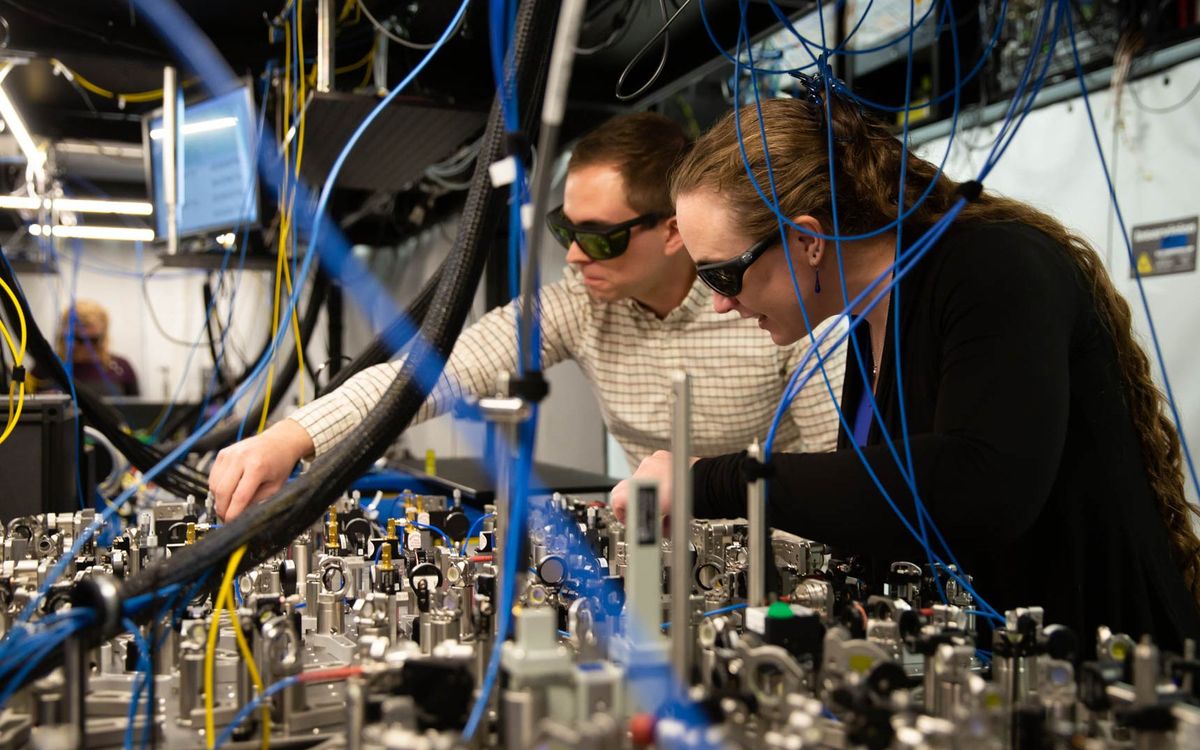There are a lot of different types of quantum computers. Arguably, none of them are ready to make a difference in the real world. But some startups are betting that they’re getting so close that it’s time to make it easy for regular software developers to take advantage of these machines. Boston-based Aliro Technologies is one such startup.
Aliro emerged from stealth mode today, revealing that it had attracted US $2.7 million from investors that include Crosslink Ventures, Flybridge Capital Partners, and Samsung NEXT’s Q Fund. The company was founded by Harvard assistant professor of computational materials science Prineha Narang, along with two of her students and a postdoctoral researcher.
Aliro plans a software stack that will allow ordinary developers to first determine whether available cloud-based quantum hardware can speed up any of their processes better than other accelerators, such as GPUs. And then it will allow them to write code that takes advantage of that speedup.
To do that, Aliro is developing relationships with makers of cloud-available quantum computers to be able to simulate their systems. Quantum computers under development today use a variety of types of qubits: superconductors, trapped ions, photons, and more. Even among those using the same basic qubit, there are big differences.
“These computers have a lot of idiosyncrasies,” says Aliro CEO Jim Ricotta. “They’re noisy; they have different types of noise; they have different types of connectivity” among their qubits, in addition to other characteristics.
These idiosyncrasies will mean some systems are better for certain workloads than others, and Aliro’s tools will help pick the one that fits the customer’s needs best, he says.
Considering that quantum computers are not yet demonstrably superior to classical computers, it might seem a bit premature to launch a quantum software company. But Aliro’s founders and backers disagree. “I think there’s a lot of signs that things are going to happen fairly rapidly in the next year or two,” says Ricotta.
Historically, people have been focused on some of the big things that quantum computers can do that classical computers can’t, such as factoring the product of large prime numbers to break encryption. However, problems like that require thousands more qubits than today’s technologies can control. But other problems—particularly those that already involve quantum mechanics, such as modeling chemical structures—are within reach. Aliro, and indeed other quantum computing startups, see a near-term opportunity in making it easy to offload these problems onto emerging cloud-accessible quantum computers as if they were just another type of hardware accelerator.
Ricotta expects the industry to reach a point in a few years’ time “where you can use the quantum computing of today or of next year and get some value in what you’re doing now.”
Alira is hardly the only company that thinks the time of useful quantum computing is nearly here. There are other quantum software startups, such as Strangeworks, QC Ware, and Zapata. But others see a long road ahead that may lead nowhere.
Samuel K. Moore is the senior editor at IEEE Spectrum in charge of semiconductors coverage. An IEEE member, he has a bachelor's degree in biomedical engineering from Brown University and a master's degree in journalism from New York University.



